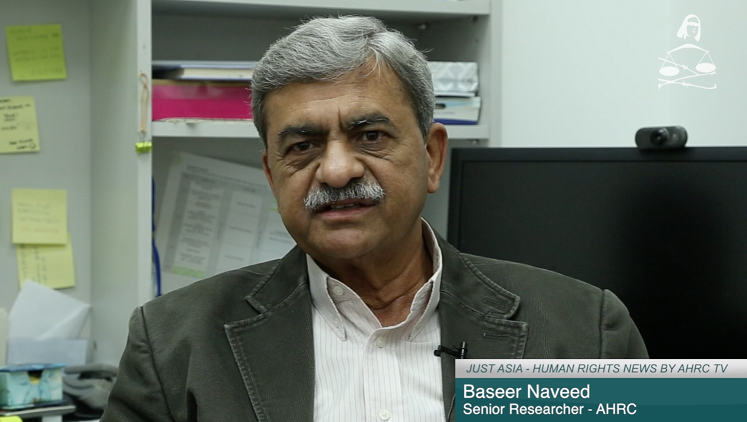 This week Just Asia begins with Pakistan, where at least 14 bloggers have disappeared since the beginning of January. The government started off 2017 with a crack-down on human rights defenders and bloggers raising their voices on disappearances and extrajudicial killings, particularly in Balochistan. The security establishment there is very sensitive to the construction of the China PakistanEconomic Corridor, starting from Gwadar port, Balochistan. Just Asia interviews Baseer Naveed, senior researcher at AHRC, for his thoughts.
This week Just Asia begins with Pakistan, where at least 14 bloggers have disappeared since the beginning of January. The government started off 2017 with a crack-down on human rights defenders and bloggers raising their voices on disappearances and extrajudicial killings, particularly in Balochistan. The security establishment there is very sensitive to the construction of the China PakistanEconomic Corridor, starting from Gwadar port, Balochistan. Just Asia interviews Baseer Naveed, senior researcher at AHRC, for his thoughts.
Next, a Sri Lankan court sentenced five police officers to death Monday, for killing a youth in police custody three years ago. Although Sri Lankan courts give the death penalty in serious crimes such as murder, rape and drug trafficking, no executions have been carried out since 1976 and most of the death penalties are commuted to life sentences.
Rohingya refugees in Bangladesh have shared horrific experiences in the last few days of how they fled their homes in Burma. These stories align with human rights groups’ reports of military atrocities in the northern state of Rakhine. Although the military claims it was carrying out a counter-insurgency operation, this was vastly exaggerated, as most Rohingya are not militant. According to the International Crisis Group, the emergence of a small group of militant Rohingya however, is a concern. Its existence could worsen the tense country situation, as well as form links with transnational jihadist organizations.
In Indonesia, a national meeting and folk school was held from 28 to 30 December 2016, by the Asian Human Rights Commission. Participants included farmers, human rights defenders, victims and university students, and the focus was on strengthening human rights knowledge and advocacy. The meeting also discussed international advocacy and Indonesia’s upcoming Universal Periodic Review in February 2017. To learn more, Just Asia speaks to Mr. Kabul Hendrawan, local human rights defender and meeting participant.
In Nepal, Dalit women are one of the most marginalized sectors of society, suffering from multiple disadvantages. The painful story of Ms. Sita BK, 48, is representative of the struggles faced by most Dalit women. Sita was raped by a high caste man. When she became pregnant, the man gave her to Mr. Ganga Bahadur BK, an old man from the Dalit community, with NPR 60,000. She later had three daughters with Ganga Bahadur. Ganga Bahadur registered the births of all the children except for the first son, Gopal. Ms. Sita shares her plight in a program organized by the Jagaran Media Center in Nepal.
The bulletin can be watched online at www.alrc.asia/justasia and AHRC TV YouTube. We welcome both human rights feeds to be considered for weekly news bulletin, and your suggestions to improve our news channel. Please write to news@ahrc.asia. You can also watch our Weekly Roundup on Facebook.